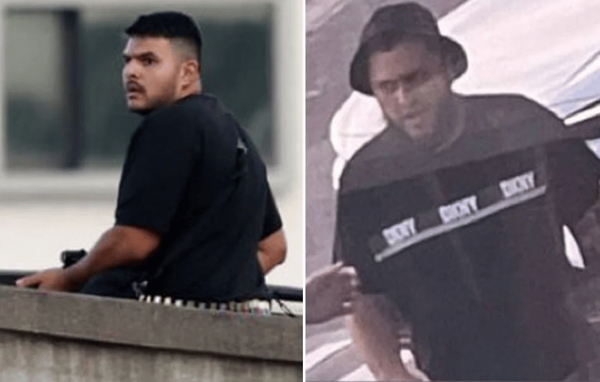
“The media called me Casanova Coombs, Don Juan,” recalls 58-year-old convicted fraudster David Coombs from his cell in HMP Wormwood Scrubs.
That seems a stretch. Neither Casanova nor Don Juan groomed victims on Smooch.com before fleecing them of their savings. Neither spent 40 years as a conman, nor were they sentenced to four years’ jail in 2017 by a judge who described Coombs as a “predator” who ruthlessly took advantage of the people (though mostly women) he, inconceivably, charmed.
Neither Casanova nor Don Juan wheeled a recent leg amputee to a hospital cashpoint and induced her to withdraw £150 for him. Nor did they dupe the woman’s friend into giving him £500 after convincing her it was a deposit for a flat.
During this five-part series, Parole (BBC Two) will show us a string of parole hearings and invite us to consider some of the greatest questions bedevilling our penal system. Can criminals change? Do we believe in the rehabilitation of offenders? Or is deputy Conservative party chairman Lee Anderson right that the death penalty is 100% successful in preventing re-offending and that, if we follow his thought process to the logical conclusion, all potential criminals should be executed before crimes happen, even if that entails the extinction of humanity?
About 16,000 inmates were considered for parole last year (4,000 were released) and there were only 364 Parole Board members in England and Wales. Isn’t there a risk some of those 4,000 offend again?
In this episode, two of those 16,000 are up for parole – “Casanova” Coombs and Colin Stacey. Twenty-five years ago, the latter, fuelled by drink and drugs, kicked Leigh Shaw to death in a pub car park brawl because he was a fan of West Ham United.
Both prisoners tell their Parole Boards that they are reformed men. Coombs tells of a mysterious Russian woman called Olga who turned his life around. It happened like this. Freed from the Scrubs under licence, Coombs fled to Moscow to meet Olga with whom he had cyber-flirted on Facebook. But what he didn’t realise is that he wasn’t grooming her but she him. She gave him an object lesson in the distress he caused to others by siphoning $2,500 from his bank account, then telling him what she’d done. “She said: ‘I tried what you have been doing,’” Coombs recalled. He didn’t like that.
It was a lightbulb moment, Coombs tells the two women tasked with deciding his fate, forensic psychologist Noreen Shami and Parole Board panel chair Lucy Gampell. How fitting that women decide this man’s fate: the show’s jeopardy indeed consists of whether they are to join the list of women he has duped.
Gampell certainly is sceptical, not least because the story of Coombs’s epiphany with Olga cannot be verified. Maybe it is just another self-serving yarn, like all the others he has told over the decades.
If so, it doesn’t work. After reading victim reports showing him to be coercive and controlling, the two women decide he is too great a risk to be set free.
But then there is a twist. A caption tells us: “David’s sentence ended in February 2023. He is automatically released into the community without any supervision.” The misgivings and compunctions Gampell and Shami had only a few months earlier have to be set aside. “I think it’s very likely he will go back to his old ways,” says Gampell. “I hope I’m proved wrong, but I doubt it.”
And I hope that Stacey, the convicted murderer who another Parole Board sets free, doesn’t go back to his old ways. I hope he is, as he claims, nothing like the angry young man he was. Julie, Leigh’s wife, deals with the revelation that he is coming out of jail with commendable stoicism, even though she thinks taking a human life should be punished with a life sentence.
When, after winning his appeal, Stacey leaves jail, he reaches for his belongings and I notice that he has, like Robert Mitchum’s psychopathic preacher in the Night of the Hunter, HATE tattooed on one knuckle. That doesn’t bode well. Whether Britain is safer or fairer now these two men are back on the streets is an open question.







